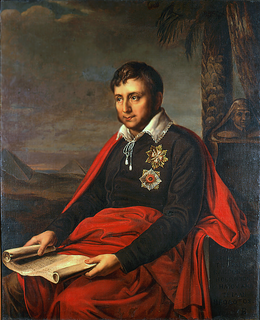A Quote by Meher Baba
All that lives is striving for happiness; yet a thousand and one pains and fears attend upon every pleasure which man seeks through the ignorance of exclusiveness.
Related Quotes
Pleasure is not the goal of man, but knowledge. Pleasure and happiness comes to an end. It is a mistake to suppose that pleasure is the goal. The cause of all the miseries we have in the world is that men foolishly think pleasure to be the ideal to strive for. After a time man finds that it is not happiness, but knowledge, towards which he is going, and that both pleasure and pain are great teachers.
Joy is not the same as pleasure or happiness. A wicked and evil man may have pleasure, while any ordinary mortal is capable of being happy. Pleasure generally comes from things, and always through the senses; happiness comes from humans through fellowship. Joy comes from loving God and neighbor. Pleasure is quick and violent, like a flash of lightning. Joy is steady and abiding, like a fixed star. Pleasure depends on external circumstances, such as money, food, travel, etc. Joy is independent of them, for it comes from a good conscience and love of God.
I believe all suffering is caused by ignorance. People inflict pain on others in the selfish pursuit of their happiness or satisfaction. Yet true happiness comes from a sense of inner peace and contentment, which in turn must be achieved through the cultivation of altruism, of love and compassion and elimination of ignorance, selfishness and greed.
Why do men learn through pain and suffering, and not through pleasure and happiness? Very simply, because pleasure and happiness accustom one to satisfaction with the things given in this world, whereas pain and suffering drive one to seek a more profound happiness beyond the limitations of this world.
But neither life nor happiness can be achieved by the pursuit of irrational whims. Just as man is free to attempt to survive in any random manner, but will perish unless he lives as his nature requires, so he is free to seek his happiness in any mindless fraud, but the torture of frustration is all he will find, unless he seeks the happiness proper to man. The purpose of morality is to teach you, not to suffer and die, but to enjoy yourself and live.
When a friend is carried to his grave, we at once find excuses for every weakness, and palliation of every fault. We recollect a thousand endearments, which before glided off our minds without impression, a thousand favors unrepaid, a thousand duties unperformed; and wish, vainly wish, for his return, not so much that we may receive as that we may bestow happiness, and recompense that kindness which before we never understood.
There is a plain distinction to be made betwixt pleasure and happiness. For tho' there can be no happiness without pleasure--yet the converse of the proposition will not hold true.--We are so made, that from the common gratifications of our appetites, and the impressions of a thousand objects, we snatch the one, like a transient gleam, without being suffered to taste the other.
Create all the happiness you are able to create: remove all the misery you are able to remove. Every day will allow you to add something to the pleasure of others, or to diminish something of their pains. And for every grain of enjoyment you sow in the bosom of another, you shall find a harvest in your own bosom; while every sorrow which you pluck out from the thoughts and feelings of a fellow creature shall be replaced by beautiful peace and joy in the sanctuary of your soul.
It is not science which leads to unbelief but rather ignorance. The ignorant man thinks he understands something provided that he sees it every day. The natural philosopher walks amid enigmas, always striving to understand and always half-understanding. He learns to believe what he does not understand, and that is a step on the road to faith.
The curse which lies upon marriage is that too often the individuals are joined in their weakness rather than in their strength -each asking from the other instead of finding pleasure in giving. It is even more deceptive to dream of gaining through the child a plenitude, a warmth, a value, which one is unable to create for oneself; the child brings joy only to the woman who is capable of disinterestedly desiring the happiness of another, to one who without being wrapped up in self seeks to transcend her own existence.








































